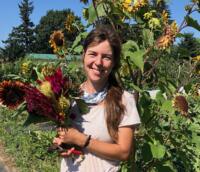The Importance of Community and Collaboration in Organic Agriculture Research
Community is one of the most potent tools organic agriculture both relies on and fosters. The challenges we all face—from climate change to food security—are far-reaching and intimately connected, requiring collective action and shared knowledge. An intentional effort to build community among research and extension officials that farmers rely on is a necessity for fostering innovation, resilience, and sustainability.
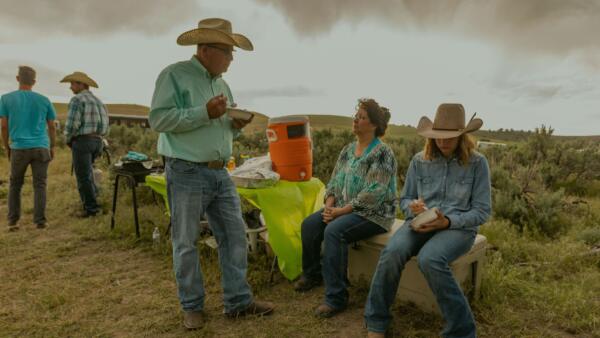 At OFRF, we are acting on that intention. We don’t just believe collaboration is the cornerstone of progress; we are actively building the foundation for it. By creating structured space and time for researchers and extension professionals within an ecoregion, we can enhance the impact of our own work and that of those researchers and extension officials. We are proud to be involved in the Transition to Organic Partnership Program for the Western and Southwestern States (TOPP-W/SW). Through this involvement, we have embarked on an initiative that brings these intentions to fruition.
At OFRF, we are acting on that intention. We don’t just believe collaboration is the cornerstone of progress; we are actively building the foundation for it. By creating structured space and time for researchers and extension professionals within an ecoregion, we can enhance the impact of our own work and that of those researchers and extension officials. We are proud to be involved in the Transition to Organic Partnership Program for the Western and Southwestern States (TOPP-W/SW). Through this involvement, we have embarked on an initiative that brings these intentions to fruition.
Through TOPP-W/SW, we have launched a regional Research/Extension Affinity Group. This is a dedicated effort to foster connections between researchers studying problems and extension agents who are often the first to hear of an issue or challenge farmers are facing. This group is more than a network; it aims to be a vibrant community of professionals committed to collaboration and mutual support. Ultimately, this group has been designed to:
- Foster Collaboration: By bringing together researchers and extension agents from across the W/SW states, we create a platform for sharing knowledge, resources, and best practices. This collaboration is crucial for tackling complex issues in organic agriculture and developing innovative solutions that benefit all.
- Provide Resources and Learning Opportunities: Access to grant funding and other resources is a common challenge. Our affinity group facilitates learning from each other’s experiences, offers guidance on navigating funding opportunities, and provides tools to help researchers and extension agents more effectively support the farmers they work with.
- Enhance Enjoyment and Fulfillment: The work we do in organic agriculture is challenging but incredibly rewarding. By building a community where members can share their successes, challenges, and experiences, we create an environment that nurtures personal and professional growth, making the journey more enjoyable and fulfilling.
The importance of community to organic production cannot be overstated. When we come together, we amplify our collective strengths, remedy our weaknesses, and ultimately create a powerful force for improving systems. Community fosters a sense of belonging and purpose, which encourages the exchange of ideas and knowledge, building a foundation of support and collective action that is essential for overcoming the challenges of our time and achieving our goals of a just and sustainable society.
As we continue in this effort, we hope you will join us! Whether you are a researcher, extension agent, farmer, or advocate, your participation is what differentiates success from failure. Together, we can break down the silos that separate us and foster a thriving community that advances the organic movement towards a sustainable future.
Let’s continue to build bridges, share knowledge, and support each other in our common goal of widespread adoption and simultaneous improvement of organic agriculture. The Research/Extension Affinity Group for the W/SW is just the beginning. With your involvement and energy, we can expand this collaborative effort and make a lasting impact on the organic farming community.
If you’re interested in hearing more about this group, especially if you live in one of the W/SW states (AZ, CA, HI, NM, TX, UT), reach out to Gordon at gordon@ofrf.org today! Together, we can and will make a difference.
Eat well,
Gordon



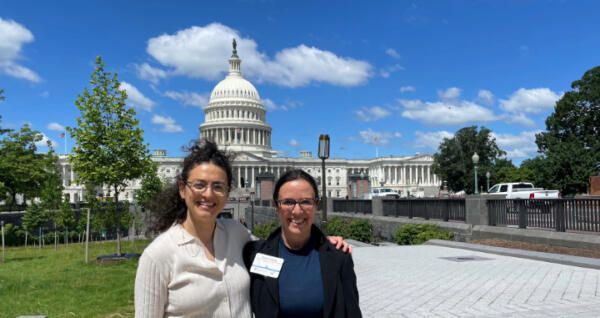



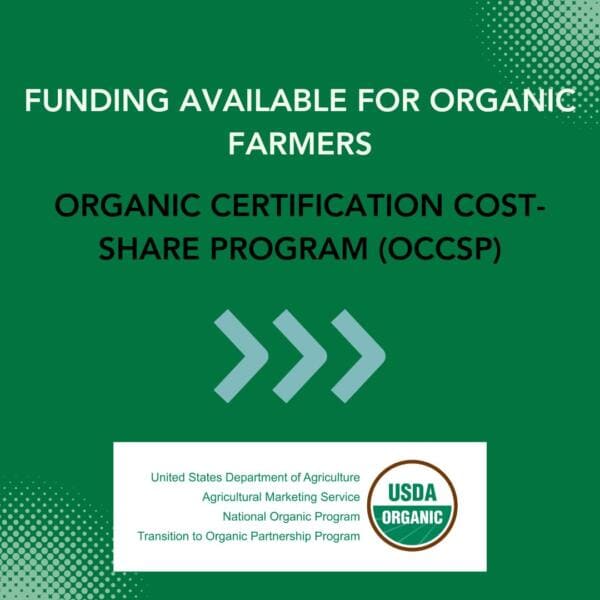
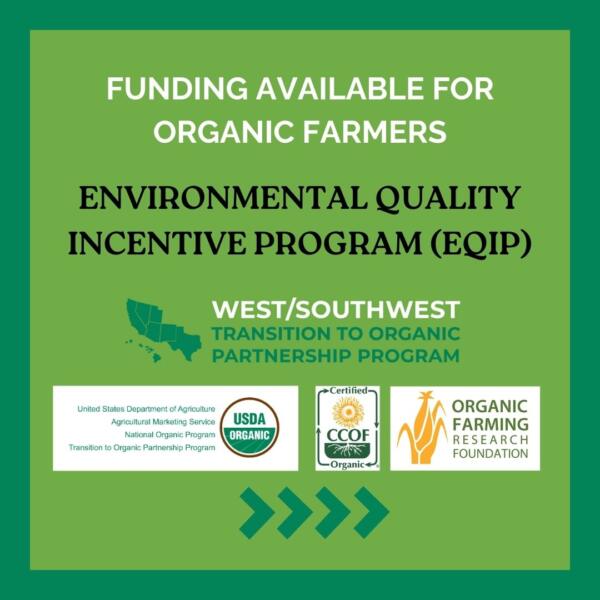
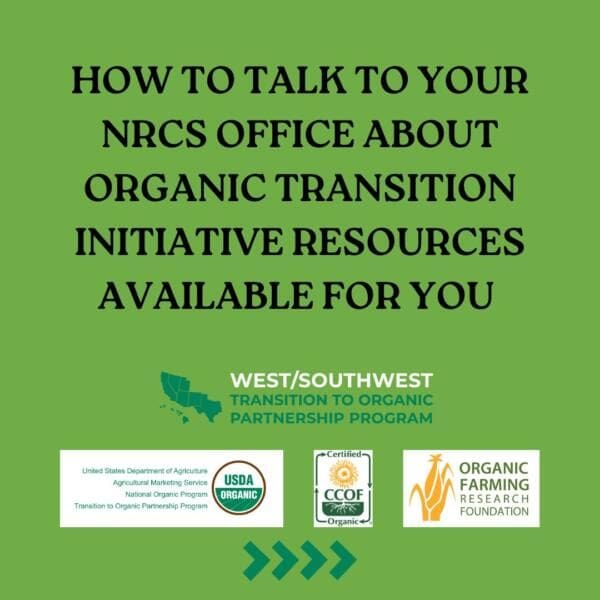

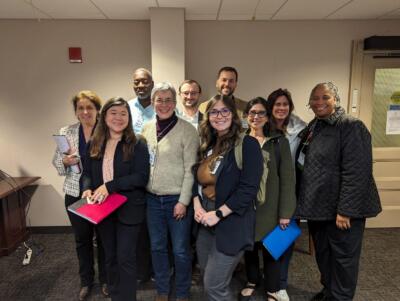

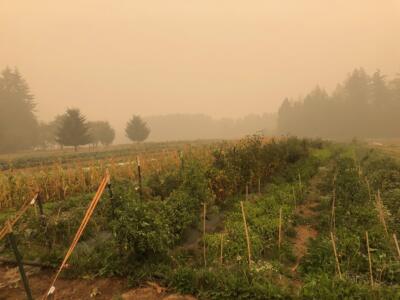
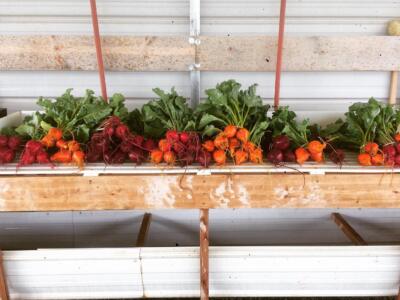 The first step toward promoting a healthier, more sustainable food system is ensuring federal and state governments support farm workers and local agricultural markets. Policymakers rely on researchers to demonstrate quantifiable issues within our food system and tangible opportunities to solve them. Only with this evidence, can advocates and policymakers demonstrate a critical need and rally support for meaningful policy development. Additionally, research can provide much needed technical and economic support for farmers to help improve their growing practices, increase yields, and make farming as profitable as it can be in light of the many barriers they face. In
The first step toward promoting a healthier, more sustainable food system is ensuring federal and state governments support farm workers and local agricultural markets. Policymakers rely on researchers to demonstrate quantifiable issues within our food system and tangible opportunities to solve them. Only with this evidence, can advocates and policymakers demonstrate a critical need and rally support for meaningful policy development. Additionally, research can provide much needed technical and economic support for farmers to help improve their growing practices, increase yields, and make farming as profitable as it can be in light of the many barriers they face. In  OFRF is also excited to be part of USDA’s
OFRF is also excited to be part of USDA’s 